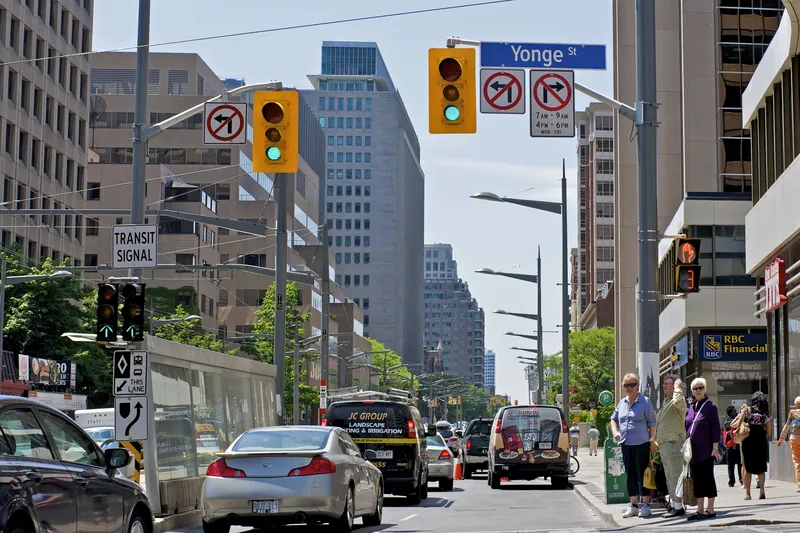
Toronto City Council in Canada has approved an action plan to help manage congestion and improve urban transportation from next year.
The council says the MoveTo blueprint includes five key measures that will help make the city's system more resilient in response to the effects of Covid-19 on the overall network.
“This plan delivers smart, common-sense approaches that will help pedestrians, cyclists, transit riders, and drivers get around our city," says mayor of Toronto John Tory.
"I have urged City staff to have the technology in place as quickly as possible to make sure we have a more modern and safer transportation system as soon as possible that responds and adapts to traffic in real time.”
The actions include a proposal to deploy smart traffic signals that adjust based on actual traffic demand at 500 locations over the next five years.
There would also be intelligent intersections that improve safety for pedestrians and cyclists installed at 100 locations over the next two years.
In a separate action, the implementation of advanced transit signal priority (ATSP) on 100 more priority locations is to be speeded up over the next two years.
ATSP detects buses running behind schedule and extends green times when necessary. There are currently 400 locations with transit signal priority in the city.
Another proposal includes the expansion of the Construction Hub Pilot Programme to include Lakeshore Hub, Downtown Hub and East Harbour.
According to the council, this programme helps manage traffic and reduce congestion caused by construction around work zones and improves communication with the local community.
The actions also contain a request to build on the existing Smart Commute programme with local employers to provide additional support for commuters, while developing strategies to address more localised instances of congestion.
Councillor James Pasternak (York Centre), chair of Infrastructure and Environment Committee, says: “Growing cities must continue to invest in these plans to make transportation systems more adaptable while also making roads in Toronto safer for people.”








